
Are you sure about what’s on your plate? Brace yourself for a shocking revelation about the foods you thought were harmless. We’re about to uncover the secrets lurking in your favorite snacks and meals.
From synthetic dyes made from petroleum to preservatives linked to health risks, the truth will make your jaw drop. Did you know that your beloved gummy candies could contain insect parts? Or that your daily bread might harbor an ingredient found in yoga mats?
Prepare to be astonished as we expose the hidden ingredients that manufacturers sneak into your everyday foods. Once you know what goes into these treats, you might never look at your grocery store shelves the same way again. We were shocked by number 15!
1. Microwave Popcorn
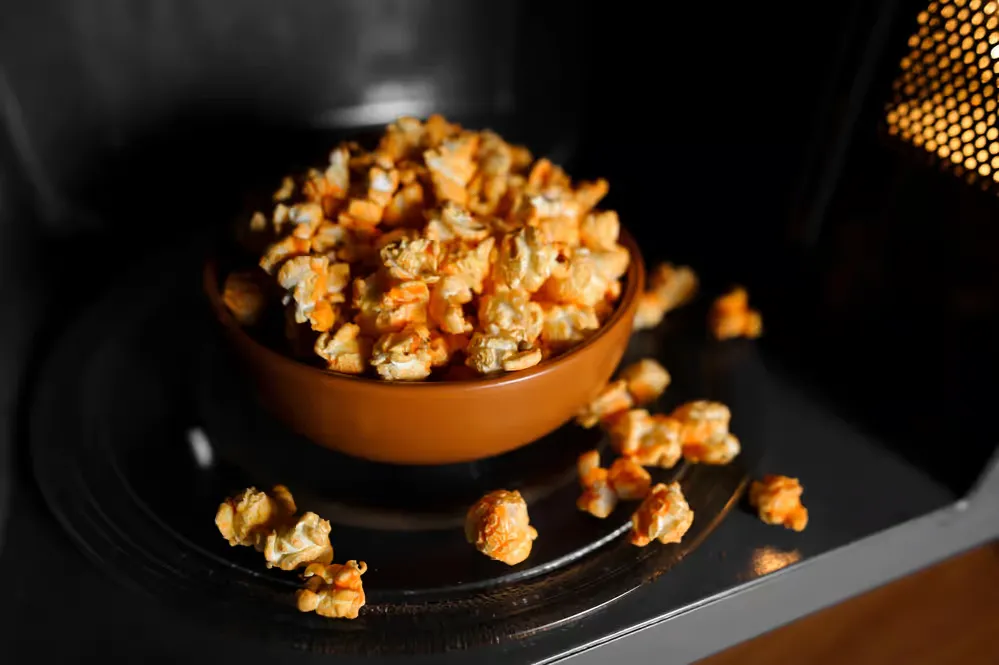
Microwave popcorn is a popular snack, but its ingredients are far from wholesome. Many brands contain artificial butter flavoring made with diacetyl, which has been linked to lung disease in factory workers. The bags are often lined with perfluorooctanoic acid (PFOA), a chemical linked to cancer.
Why You Should Avoid It
The artificial flavors and chemicals in microwave popcorn can pose serious health risks, including respiratory issues and an increased risk of cancer. Make your own popcorn on the stove or with an air popper for a healthier snack.
2. Hot Dogs

Hot dogs are a favorite at barbecues and ball games, but their ingredient list reads more like a horror story than a recipe. They’re made from mechanically separated meats, which include various cuts and parts from pork, beef, and chicken. This blend is mixed with water, corn syrup, and a cocktail of preservatives like sodium nitrate – a chemical linked to an increased risk of cancer.
Why You Should Avoid Them
High in sodium and packed with preservatives, hot dogs are a ticking time bomb for your health. Regular consumption has been associated with a higher risk of heart disease, diabetes, and certain cancers. Trust me, once you know what’s inside, you’ll think twice before biting into another hot dog.
3. Processed Cheese

That perfectly square slice of processed cheese in your sandwich is more science experiment than dairy delight. Processed cheese contains a mix of real cheese, emulsifiers, artificial colors, and preservatives. Sodium phosphate, a common emulsifier, can wreak havoc on your kidneys and cardiovascular system when consumed in large quantities.
Why You Should Avoid It
With its high sodium content and a host of additives, processed cheese can contribute to hypertension and other health issues. Plus, those artificial colors and preservatives? They’re linked to everything from allergic reactions to hyperactivity in children. Next time you’re making a sandwich, opt for real cheese – your body will thank you.
4. Chicken Nuggets
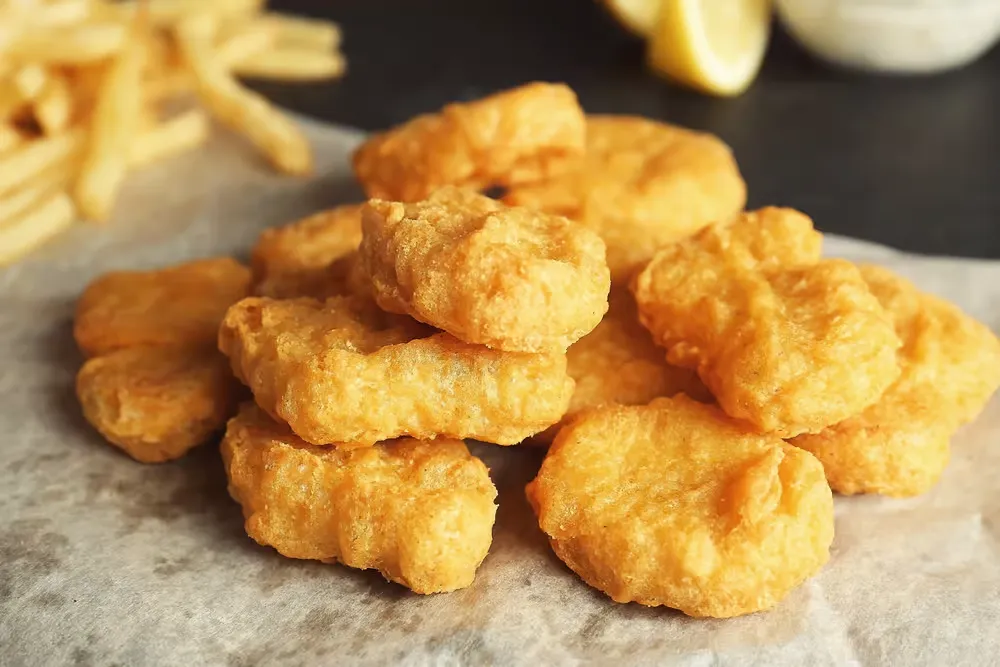
Kids love them, and let’s be honest, adults do too. But chicken nuggets are far from being pure chicken. They’re made from a slurry of mechanically separated chicken, which includes meat, skin, and bones ground together. Add in fillers like modified food starch and a slew of preservatives, and you’ve got a recipe for disaster. Most nuggets are also fried in oils that can contain trans fats, which are linked to heart disease.
Why You Should Avoid Them
Regularly eating chicken nuggets can lead to obesity, heart disease, and other serious health issues due to their high fat and sodium content. The trans fats and preservatives only add to the health risks. When the craving hits, consider making homemade nuggets with whole ingredients instead.
5. Imitation Crab Meat

Imitation crab, or surimi, is a popular ingredient in sushi rolls and seafood salads, but it’s far from the real deal. Made from pulverized fish, usually pollock, it’s mixed with starches, sugar, and artificial flavorings to mimic crab meat. The kicker? These artificial flavorings often contain monosodium glutamate (MSG), which can cause adverse reactions like headaches and nausea in some people.
Why You Should Avoid It
With its artificial flavorings and high sodium content, imitation crab meat is a nutritional nightmare. MSG can trigger migraines and other symptoms in sensitive individuals, and the added sugars and starches don’t do your waistline any favors. Stick to real crab or other whole seafood options for a healthier choice.
6. Instant Noodles
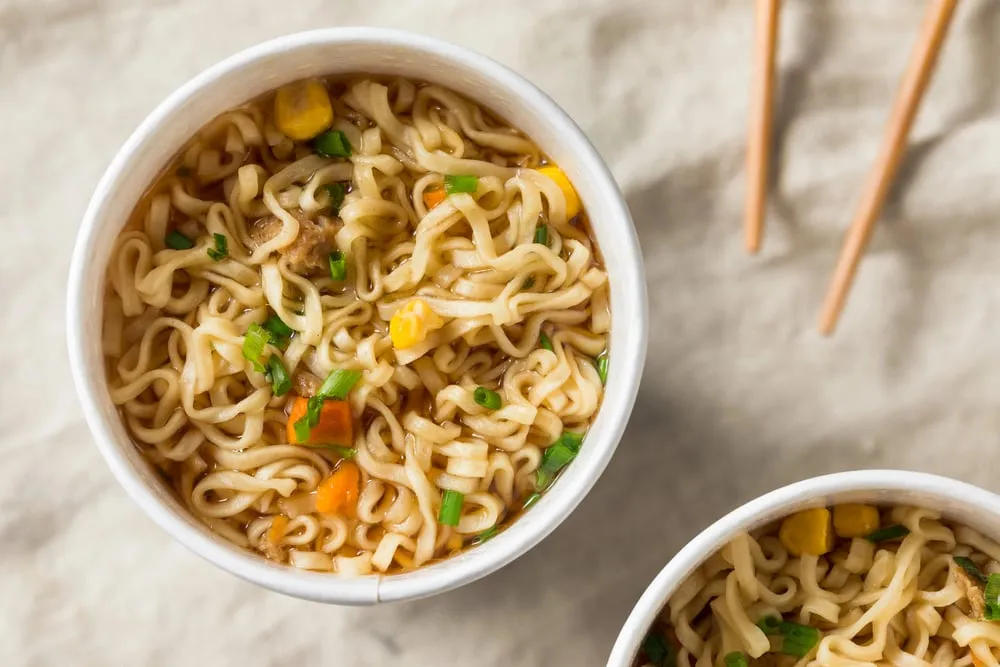
Instant noodles are the epitome of convenience, but their ingredient list is enough to make you lose your appetite. The noodles are often deep-fried to preserve them, making them high in unhealthy fats. The flavor packets that come with them are loaded with sodium, MSG, and a variety of artificial flavors and preservatives.
Why You Should Avoid Them
Consuming instant noodles regularly can lead to high blood pressure, heart disease, and metabolic syndrome due to their high sodium and unhealthy fat content. The MSG and artificial additives can cause headaches and other adverse reactions. If you love noodles, try making your own with fresh ingredients – it’s healthier and just as satisfying.
7. Fruit Snacks
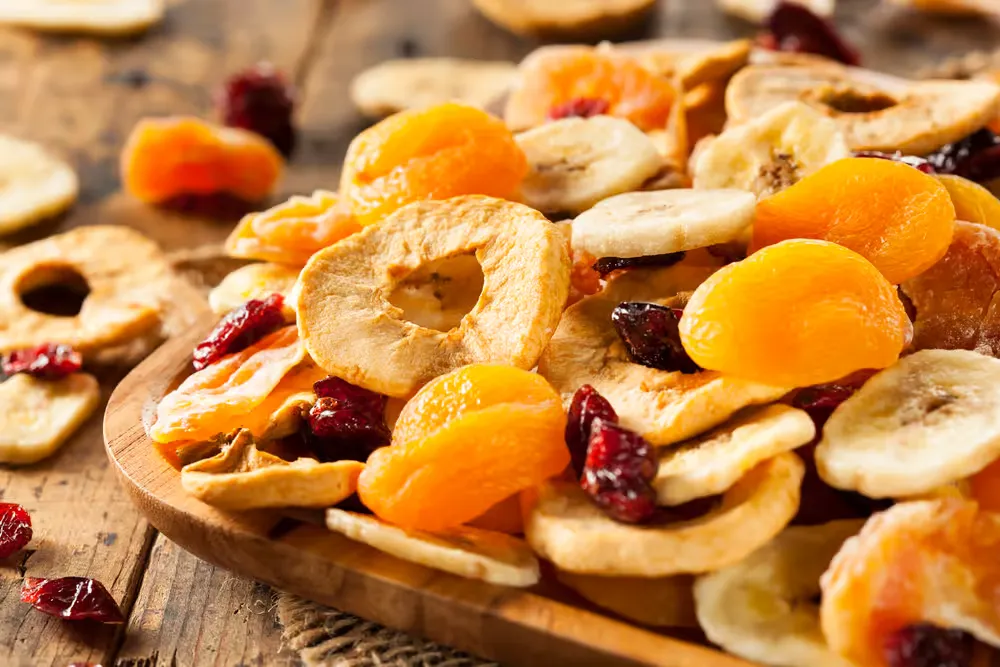
They may seem like a healthier alternative to candy, but fruit snacks are often just as bad. Many fruit snacks contain very little actual fruit and are instead made from concentrated fruit juices, sugar, corn syrup, and a variety of artificial colors and flavors. The high sugar content, combined with additives like red dye 40, is a recipe for health problems.
Why You Should Avoid Them
Fruit snacks are essentially candy in disguise. The high sugar content can lead to obesity, diabetes, and tooth decay, while artificial colors like red dye 40 have been linked to hyperactivity in children. Reach for whole fruits instead – they’re naturally sweet and packed with nutrients.
8. Breakfast Cereals
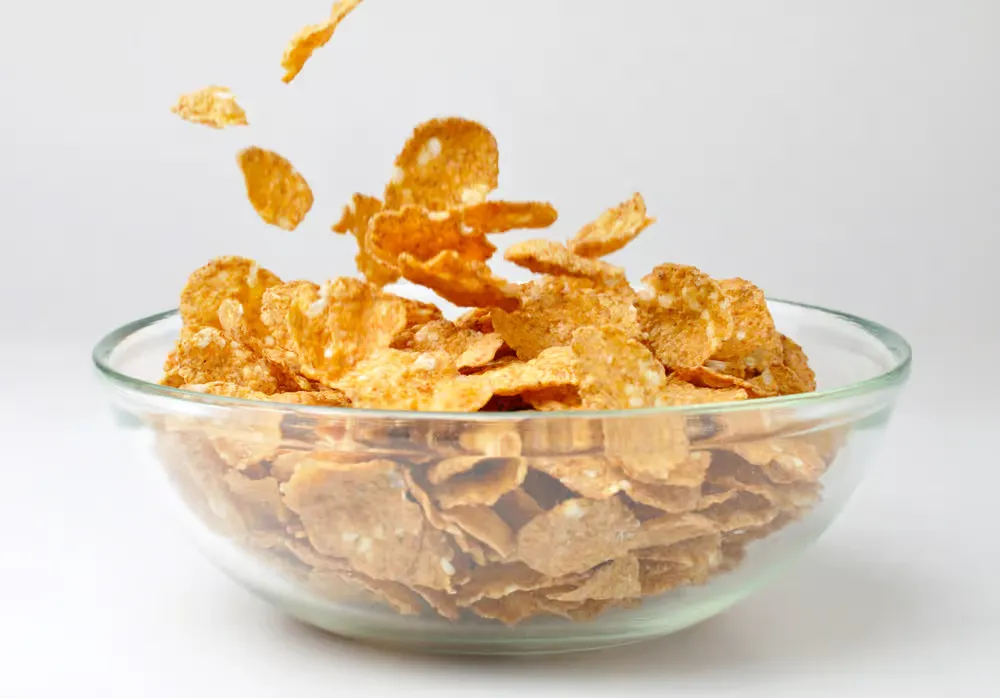
Many breakfast cereals, especially those marketed to children, are loaded with sugar and artificial ingredients. The grains in these cereals are often highly processed and stripped of their natural nutrients. To make up for this, synthetic vitamins and minerals are added back in. They also contain artificial colors and flavors, as well as preservatives like butylated hydroxytoluene (BHT), which has been shown to have carcinogenic effects in animal studies.
Why You Should Avoid Them
Starting your day with a bowl of sugar-laden cereal can lead to energy crashes, weight gain, and long-term health issues like diabetes and heart disease. The artificial additives and preservatives only add to the risks. Choose whole grain cereals with no added sugars or, better yet, make your own granola at home.
9. Margarine

Once touted as a healthier alternative to butter, margarine is actually a chemical concoction. It’s made from vegetable oils that are chemically altered to stay solid at room temperature, creating trans fats in the process. These trans fats have been definitively linked to an increased risk of heart disease. Margarine also contains artificial colors and flavors to mimic the taste and appearance of butter.
Why You Should Avoid It
The trans fats in margarine can raise bad cholesterol levels while lowering good cholesterol, significantly increasing your risk of heart disease. The artificial additives don’t do your health any favors either. Stick to natural fats like butter or olive oil for a healthier option.
10. Commercial Baked Goods
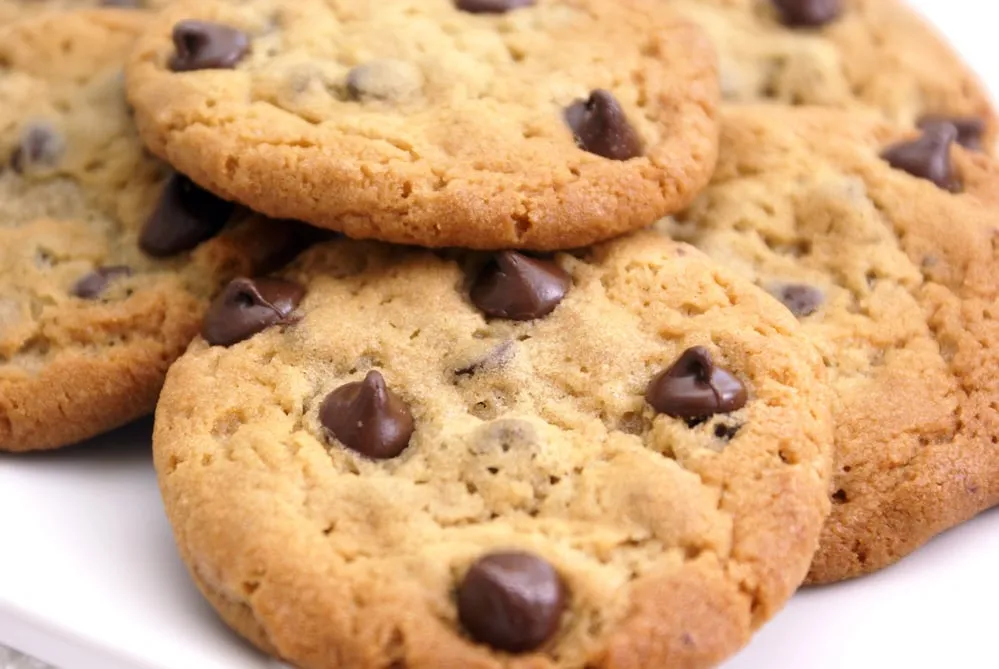
Store-bought baked goods like cakes, cookies, and pastries are convenient, but they often contain a plethora of undesirable ingredients. These can include hydrogenated oils (trans fats), high-fructose corn syrup, artificial flavors, and a variety of preservatives to extend shelf life.
Why You Should Avoid Them
Consuming commercial baked goods regularly can lead to obesity, diabetes, and heart disease due to their high sugar and unhealthy fat content. The artificial additives and preservatives can also have negative effects on your health. When you’re in the mood for something sweet, try baking at home with whole ingredients – it’s more rewarding and much healthier.
11. Soda
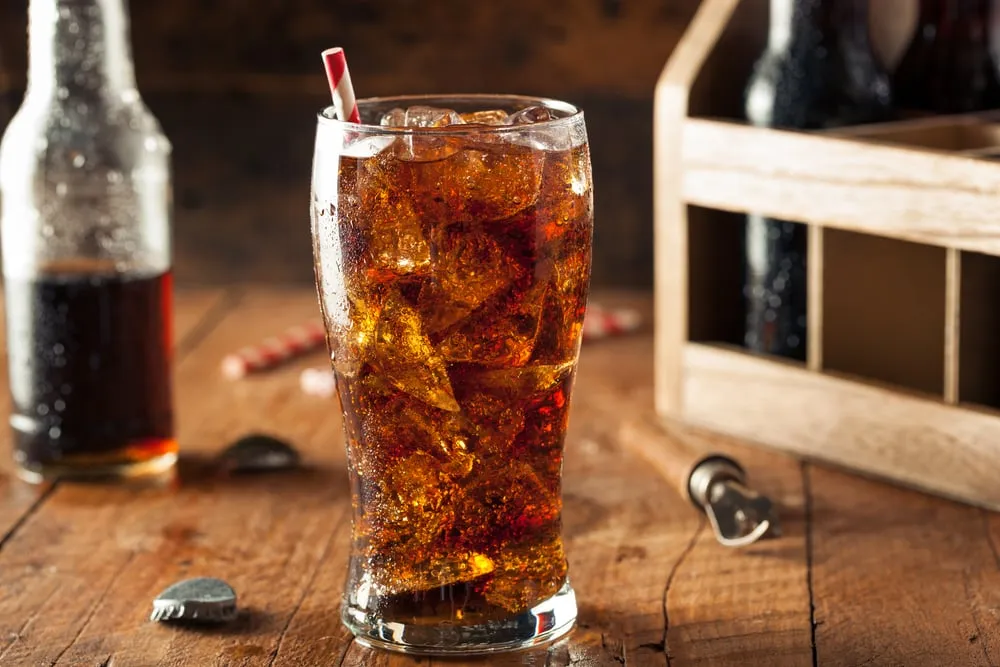
Soda is one of the most consumed beverages worldwide, yet it’s one of the unhealthiest. It’s packed with high-fructose corn syrup or artificial sweeteners, both of which can have negative health effects. Additionally, sodas contain phosphoric acid, which can erode tooth enamel and leach calcium from bones, leading to dental problems and osteoporosis.
Why You Should Avoid It
Regular soda consumption can lead to weight gain, diabetes, and metabolic syndrome due to its high sugar content. The artificial sweeteners in diet sodas aren’t any better – they’ve been linked to weight gain and metabolic issues as well. Switch to water, herbal teas, or naturally flavored seltzers for a healthier hydration option.
12. Frozen Dinners

Frozen dinners may be convenient, but they’re often packed with unhealthy ingredients. Many contain high levels of sodium, preservatives, artificial flavors, and unhealthy fats. The meat in these meals is usually highly processed, and the vegetables are often overcooked, stripping them of their nutrients.
Why You Should Avoid Them
Eating frozen dinners regularly can contribute to high blood pressure, heart disease, and other health issues due to their high sodium and unhealthy fat content. The lack of fresh, nutritious ingredients means you’re not getting the vitamins and minerals your body needs. Opt for homemade meals with fresh ingredients whenever possible – they’re healthier and taste better too.
13. Canned Soup
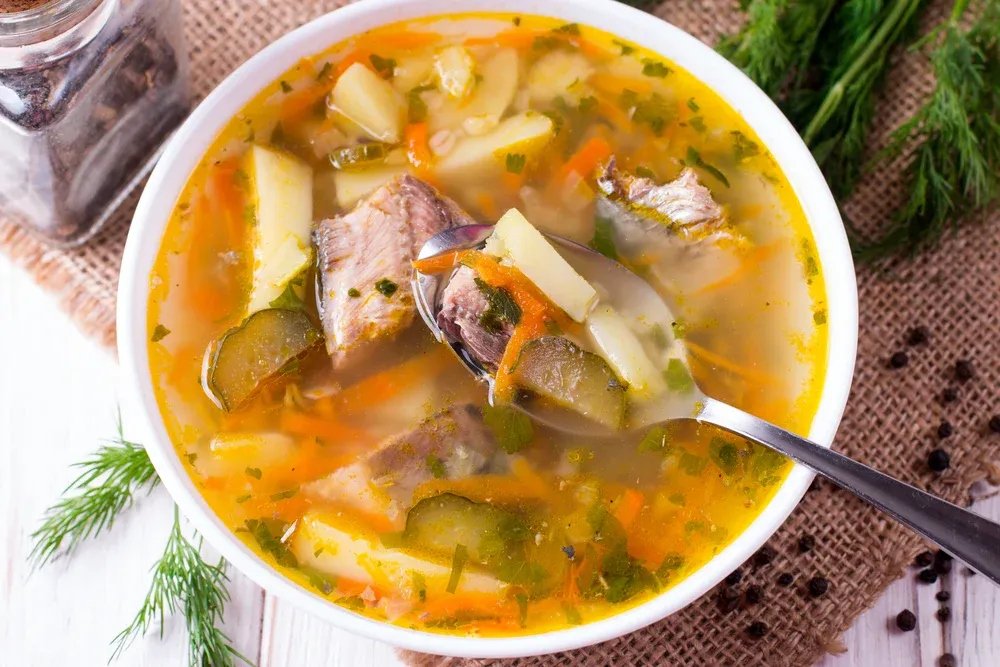
Canned soup might seem like a quick and easy meal, but it’s often loaded with sodium, preservatives, and artificial flavors. Many canned soups also contain MSG, which can cause adverse reactions in some people. The can lining often contains BPA, a chemical linked to various health issues.
Why You Should Avoid It
The high sodium content in canned soup can lead to hypertension and heart disease, while the MSG and artificial additives can cause headaches and other adverse reactions. BPA exposure has been linked to hormonal disruptions and increased cancer risk. Making your own soup at home with fresh ingredients is a healthier and tastier alternative.
14. Packaged Deli Meats

Packaged deli meats might be convenient for sandwiches, but they’re often filled with preservatives like sodium nitrate, as well as artificial flavors and colors. These meats are also high in sodium and may contain added sugars and unhealthy fats.
Why You Should Avoid Them
Regular consumption of deli meats has been linked to an increased risk of heart disease, diabetes, and certain cancers due to their high sodium and preservative content. The artificial additives and unhealthy fats only add to the health risks. Opt for fresh, unprocessed meats whenever possible.
15. Packaged Bread
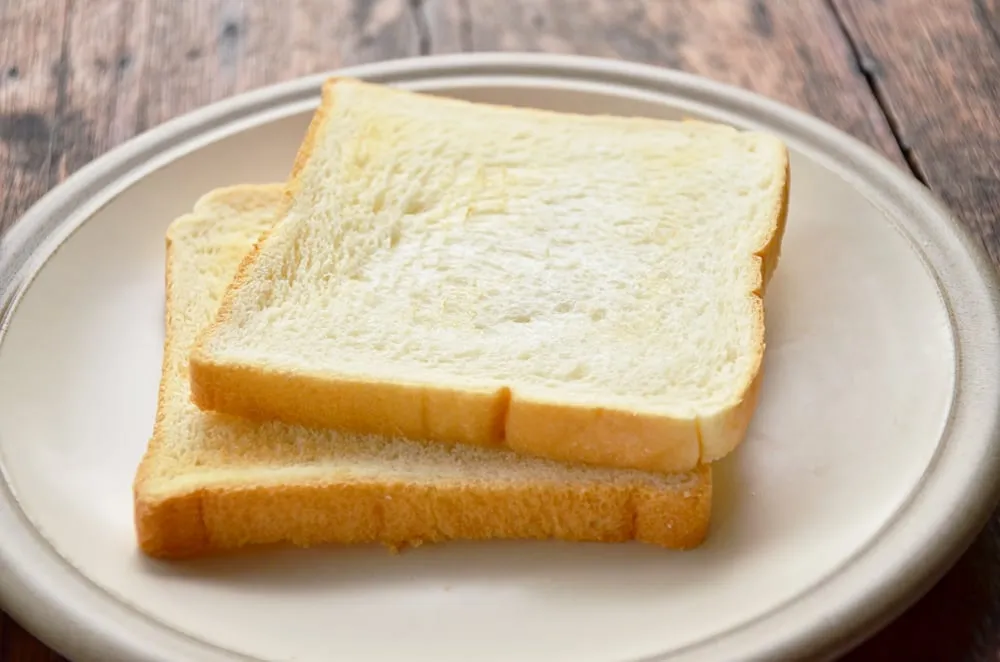
Packaged bread is a staple in many households, but you might rethink your choice after learning what’s in it. Many commercial breads include L-cysteine, an amino acid used to condition dough and extend shelf life. Here’s the kicker: L-cysteine is often derived from human hair or poultry feathers.
Why You Should Avoid It
Knowing that your bread could contain human hair or feathers is unsettling enough, but packaged bread also often contains high-fructose corn syrup, preservatives, and artificial additives. These ingredients can lead to weight gain, inflammation, and other health issues. Opt for freshly baked bread from a local bakery or make your own at home for a healthier alternative.
16. Energy Drinks
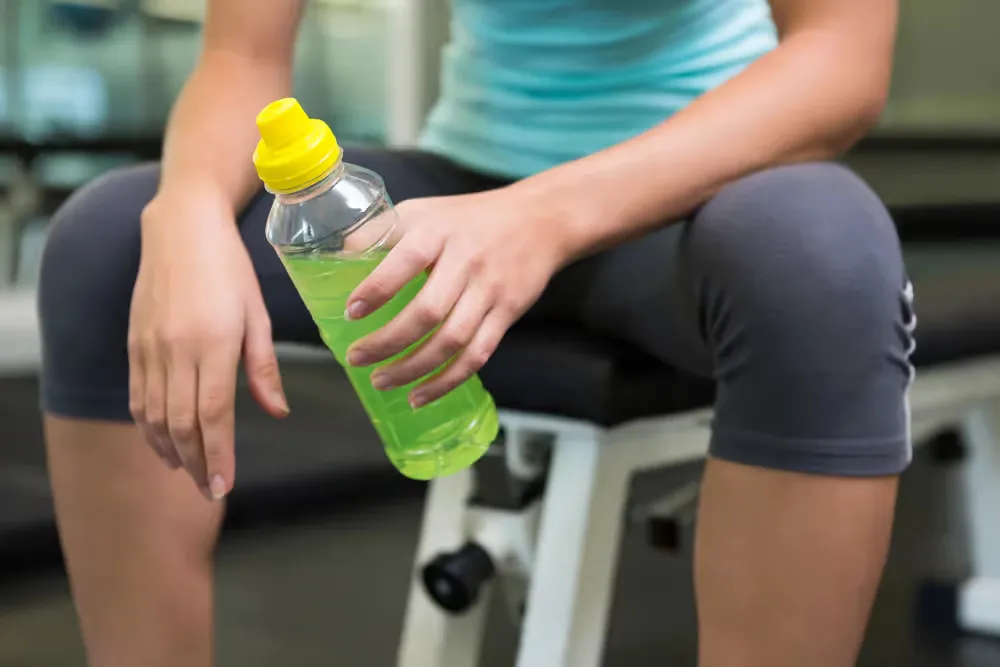
Energy drinks are marketed as a quick way to boost your energy, but they’re loaded with caffeine, sugar, and artificial additives. Many also contain high levels of B vitamins and other supplements, which can cause adverse reactions in large amounts.
Why You Should Avoid Them
The high caffeine and sugar content in energy drinks can lead to increased heart rate, high blood pressure, and other cardiovascular issues. The artificial additives and excessive B vitamins can cause headaches, nausea, and other adverse reactions. For a natural energy boost, try drinking water, eating a balanced diet, and getting plenty of sleep.
17. Flavored Yogurt
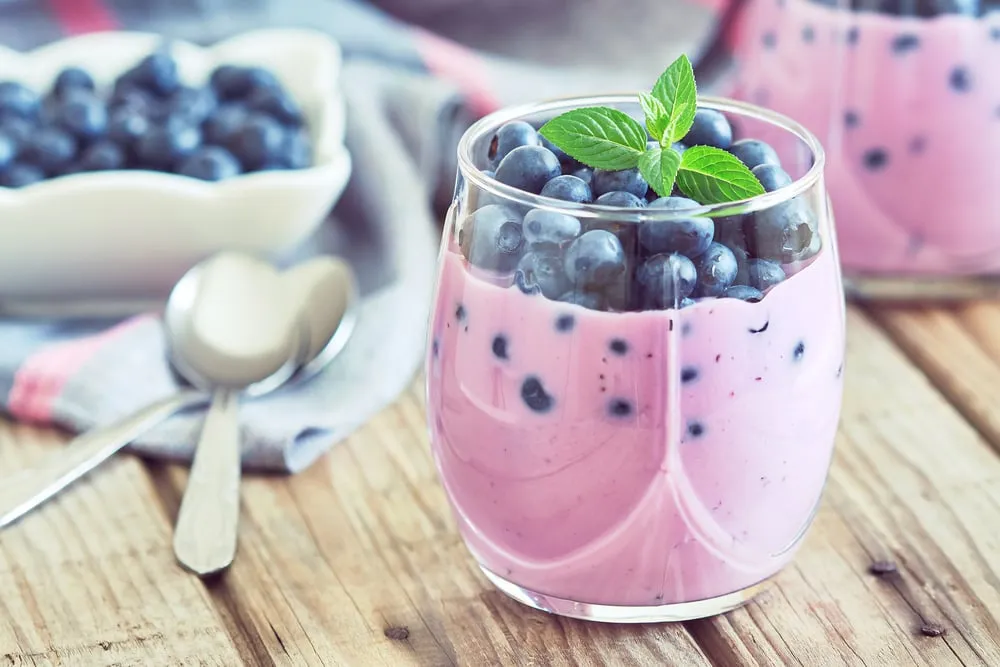
Flavored yogurt might seem like a healthy choice, but it’s often loaded with sugar and artificial flavors. Many brands also contain thickeners and stabilizers like modified corn starch and gelatin.
Why You Should Avoid It
The high sugar content in flavored yogurt can contribute to weight gain, diabetes, and other health issues. The artificial flavors and thickeners don’t add any nutritional value. Opt for plain yogurt and add your own fresh fruit and honey for a healthier option.
18. Bottled Salad Dressings

Bottled salad dressings might make your greens taste better, but they’re often filled with unhealthy ingredients. Many contain high-fructose corn syrup, artificial flavors, and preservatives. They’re also high in unhealthy fats and sodium.
Why You Should Avoid Them
The unhealthy fats, sugars, and artificial additives in bottled salad dressings can negate the health benefits of your salad. Making your own dressing at home with olive oil, vinegar, and fresh herbs is a healthier and tastier alternative.
19. Mayonnaise
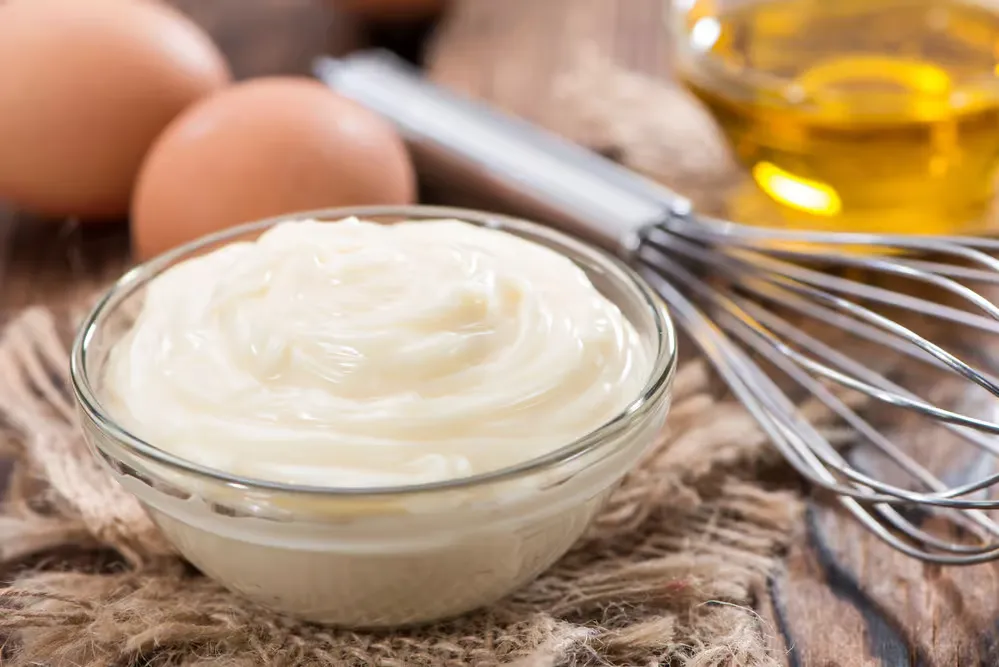
Mayonnaise is a common condiment, but it’s shockingly high in fat and calories. Made primarily from oil, egg yolks, and vinegar or lemon juice, a single tablespoon can contain around 100 calories and 11 grams of fat. Many store-bought versions also contain preservatives and artificial flavors.
Why You Should Avoid It
The high fat content in mayonnaise can contribute to weight gain and high cholesterol levels. The preservatives and artificial additives don’t do your health any favors either. Opt for healthier alternatives like Greek yogurt or avocado spreads to cut down on unhealthy fats.
20. Marshmallows
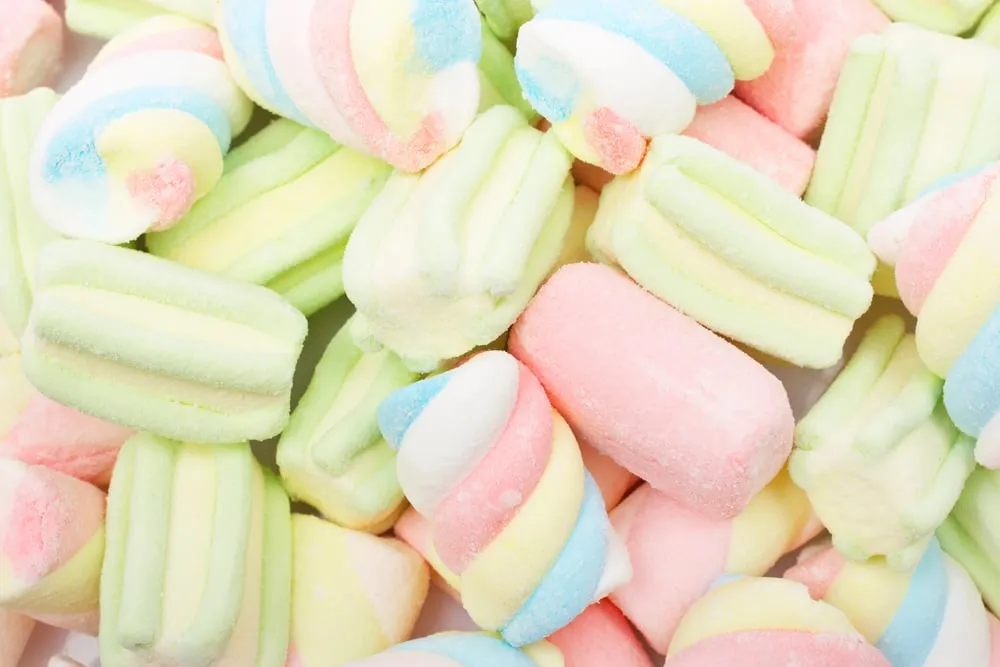
Marshmallows are a sweet treat, but their main ingredient is gelatin, which is made from boiled animal carcass parts like skin, bones, and connective tissues. They also contain high amounts of sugar, corn syrup, and artificial flavors and colors.
Why You Should Avoid Them
Knowing that marshmallows contain boiled animal parts is enough to turn many people off, but the high sugar content can also lead to obesity, diabetes, and tooth decay. If you’re craving something sweet, try making your own vegan marshmallows or opt for a healthier dessert.
21. Cinnamon

Cinnamon is a beloved spice, but here’s a dirty little secret: commercially available ground cinnamon can sometimes be contaminated with animal feces. This contamination occurs during harvesting and processing, and although steps are taken to minimize it, the risk still exists.
Why You Should Avoid It
While the risk of contamination is relatively low, it’s enough to make you reconsider sprinkling cinnamon on your morning oatmeal. When possible, opt for organic cinnamon or grind your own from whole sticks to reduce the risk of contamination and ensure you’re getting pure spice.